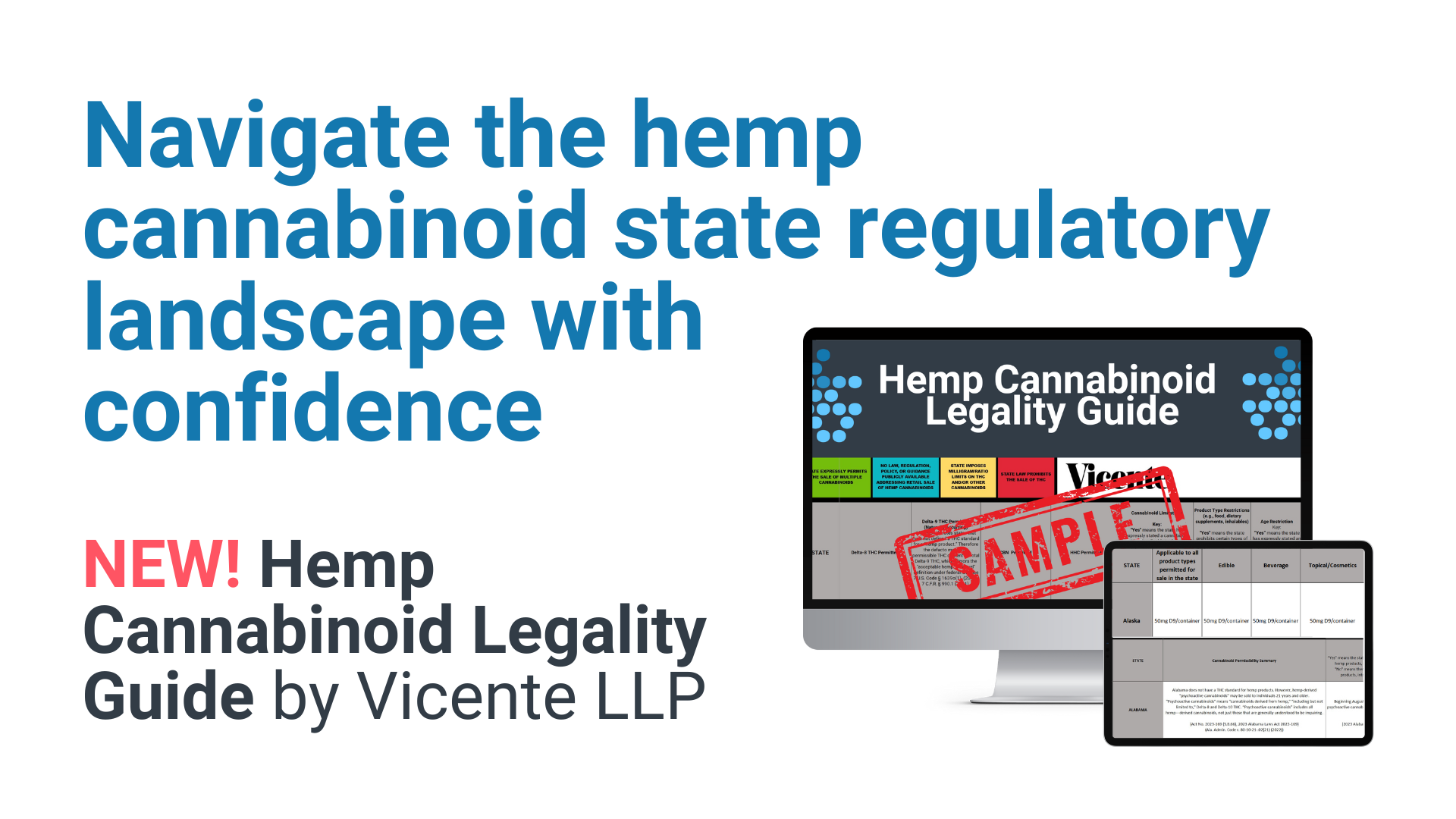Is Minnesota’s New Hemp-derived THC Edible Law Discriminatory?
By Shawn Hauser, Ariane Beckman
Oct 19, 2022
On September 14, 2022, Vireo Health of Minnesota (a physician-founded, patient-focused company) filed a complaint in Minnesota District Court against the Minnesota Department of Health alleging that Minnesota’s recently amended rules allowing hemp-derived THC edibles “unconstitutionally discriminate[s] against Vireo in the market for edible products that contain THC.” Vireo Health of Minnesota is one of two companies authorized to sell medical cannabis and medical cannabis products in Minnesota.
No Regulatory Framework from FDA for Consumable Hemp-derived Products
The 2018 Farm Bill legalized hemp and preserved the authority of the FDA to regulate consumable finished hemp-derived products. The FDA’s failure to establish a regulatory framework for hemp products and enforce existing product safety standards, coupled with the innovation of newly legal hemp and a flourishing market of cannabis consumers, has created a growing market for high-THC “intoxicating” hemp products not intended by the 2018 Farm Bill. These hemp-derived intoxicating products can cause similar effects and have similar THC levels as marijuana-derived products but are not subject to the marijuana regulatory frameworks.
Currently, marijuana and marijuana products are only legal in Minnesota for medical use. Medical marijuana products, including edibles, must comply with Minnesota’s medical marijuana laws, strict regulations, and testing requirements. However, the recently amended rules do not require hemp-derived edibles to be subject to these same strict regulations.
Vireo’s Complaint Against The Minnesota Department of Health
Vireo argues that there is no rational basis for these different regulatory requirements. Under the rational basis standard, the court must find that the statutes have a legitimate state interest and a rational connection between the statute’s means and goals. This does not mean the laws’ goals themselves must be rational, but the laws must reach their goals in a rational way.
Vireo’s complaint also alleges these regulatory differences are discriminatory because Vireo must comply with the costly compliance rules for their cannabis-derived edibles, while companies selling chemically identical hemp-derived edibles do not have to comply with those same rules. As such, Vireo requested a declaratory judgment that:
-
Vireo is allowed to sell medical marijuana-derived edibles to the same extent that hemp-derived edibles may be sold in Minnesota
-
Vireo is allowed to distribute medical marijuana-derived edibles to the same extent that hemp-derived edibles may be distributed in Minnesota
-
Any provisions of the Medical Cannabis Laws, Hemp Statute, and any other Minnesota statute that prohibit such sales by Vireo violate the Minnesota constitution's guarantee of equal protection and due process, these provisions are therefore invalid, and they must be stricken
-
The DOH [Department of Health], OMC [Office of Medical Cannabis], the Minnesota Attorney General, the County Attorneys, and any other person or entity with prosecutorial authority may not revoke Vireo's license, prosecute Vireo, fine Vireo, or otherwise impose any penalty or adverse consequence on Vireo for selling medical marijuana-derived edibles to the same extent that hemp-derived edibles may be sold in Minnesota
First Lawsuit Against a State for Applying Different Regulatory Rules for THC Products
This is the first lawsuit that has been brought against a state for applying different regulatory rules to hemp-derived products with THC and marijuana-derived products with the same amount of THC. This lawsuit could establish that hemp-derived and marijuana-derived products must be subject to the same regulations, or it could establish that regulations should focus on the final chemical makeup of products instead of what plant the product originated from. The complaint may also encourage Minnesota lawmakers to implement stricter regulations for hemp-derived edibles.
For now, we will have to wait and see what the court decides.
If you have questions about intoxicating hemp products, please contact VS partner and Hemp & Cannabinoids Department co-chair Shawn Hauser.

